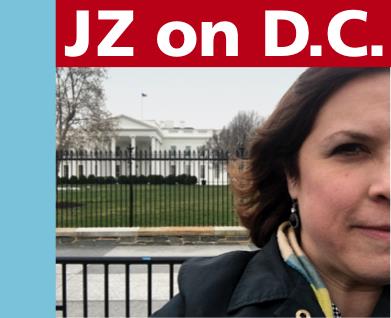9/1/2023
Federal Labor Program Updates
Jennifer Zurko

Federal Labor Program Updates
There were several Department of Labor (DOL) updates on both the H-2A and H-2B temporary worker programs in July. DOL announced it received applications for more than 33,000 visas during the initial three-day filing window for the first half cap. According to the H-2B Workforce Coalition, this is the first time this has occurred in the first half of the year and the earliest it has ever happened. On July 6, the Office of Foreign Labor Certification (OFLC) provided written notice to each employer and their representatives informing them about their assignment groups.
DOL also released a second round of Frequently Asked Questions (FAQs) on the Adverse Effect Wage Rate (AEWR) final rule, which was released earlier this year. The FAQs provide guidance on AEWR determinations, including how a State Workforce Agency (SWA) and the Certifying Officer (CO) determine which AEWR applies to a job opportunity, how SWAs and COs determine the AEWR for job duties with multiple Standard Occupational Classification codes, and the impact of certain job duties on AEWRs.
In related news, the National Council of Agricultural Employers just filed a motion to oppose DOL’s motion to dismiss their AEWR litigation.
—Tal Coley, CEO, Florida Nursery, Growers & Landscape Association
Groups to File Suit on Florida’s SB1718
In July, the Southern Poverty Law Center, American Civil Liberties Union, ACLU of Florida, Americans for Immigration Justice and American Immigration Council said they planned on filing a federal lawsuit challenging SB1718. SB1718 was signed into law in May by Governor Ron DeSantis.
The suit will be filed on behalf of several individuals and the Florida Farmworkers Association, and will center on the provisions in Section 10, which focuses on transportation of undocumented immigrants into the state. A July 3 story from ABC News provided background on the lawsuit, as well as reaction from local law enforcement in Miami-Dade.
While Gov. DeSantis’ immigration crackdown claimed to address lax border enforcement, The Wall Street Journal editorialized that it would worsen already-difficult labor shortages in Florida. Among its provisions, the law requires that businesses with 25 or more workers use the U.S. government’s E-verify system to confirm the legal status of new hires, under threat of being fined $1,000 a day. Agriculture and hospitality, major pillars of Florida’s economy, heavily rely on immigrants in their labor forces. Amid Florida’s population growth, demand for services and housing is surging, resulting in an increased demand for workers. The editorial board at the WSJ concluded that limiting this workforce can curb the state’s economic expansion and worsen its labor shortages.
—Tal Coley, FNGLA, and Marlo Hicks, AmericanHort
New Developments on Crop Protection & Endangered Species
EPA recently released several proposals related to pesticide consultations under the Endangered Species Act (ESA). Over the past decade, EPA has been sued repeatedly for failing to consult with the Fish & Wildlife Service and the National Marine Fisheries Service (the Services) about the impact of EPA-registered pesticides on endangered species and species habitat. These lawsuits cover hundreds of endangered species and numerous pesticide active ingredients. While the focus of these lawsuits is procedural, the regulatory uncertainty that has resulted threatens the ability to use important pest control tools in and beyond horticulture.
As part of the pesticide registration process, EPA reviews pesticide products to ensure that they do not harm endangered species or their habitat. The Federal Insecticide, Fungicide and Rodenticide Act (FIFRA) is a risk-based standard that considers not only the risk of the pesticide, but also the potential exposure and benefits of the product. By contrast, the ESA only focuses on the product’s potential harmful effects and doesn’t have as stringent a standard for the validation of data used in assessments. Resource constraints and outright disagreements between EPA and the Services about how to conduct pesticide assessments have hampered the consultation process.
EPA and the Services are working to resolve their differences through an Interagency Work Group authorized under the 2018 Farm Bill that includes EPA, the Services and USDA. As a result of settlements in various lawsuits, EPA and the Services are required to meet court-ordered deadlines for completing consultations on a variety of pesticide products.
In addition, new legal challenges continue to be filed. During the summer, EPA had undertaken several actions that could help the agency and the Services deal with the significant workload required for ESA compliance, but could also significantly impact the ability of greenhouse growers and landscape managers to use important pest control tools.
Vulnerable Species Pilot Project: In 2022, EPA launched this pilot to identify both at-risk species reasonably certain to be adversely affected by non-residential outdoor uses of pesticides and proposed conservation measures to reduce impacts on the species and its habitat. The initial pilot focuses on 27 federally listed species. Proposed mitigation measures in the white paper include timing restrictions, runoff and erosion minimization, spray drift minimization, pesticide use limitation areas (PULAs), and general avoidance.
Draft Herbicide Proposal: On July 24, EPA released a proposed draft strategy outlining the Agency’s plan to protect endangered species as it relates to herbicide applications. It’s a massive proposal that discusses early mitigations for more than 900 listed species and designated critical habitats. The proposed measures are intended to reduce surface water runoff, spray drift and transport of agricultural chemicals through erosion.
— Matt Mika & Dr. Michael Martin, AmericanHort
News, views, commentary and event coverage about the policies and legislation that directly affect our industry. Share your thoughts, opinions and news with me: jzurko@ballpublishing.com.